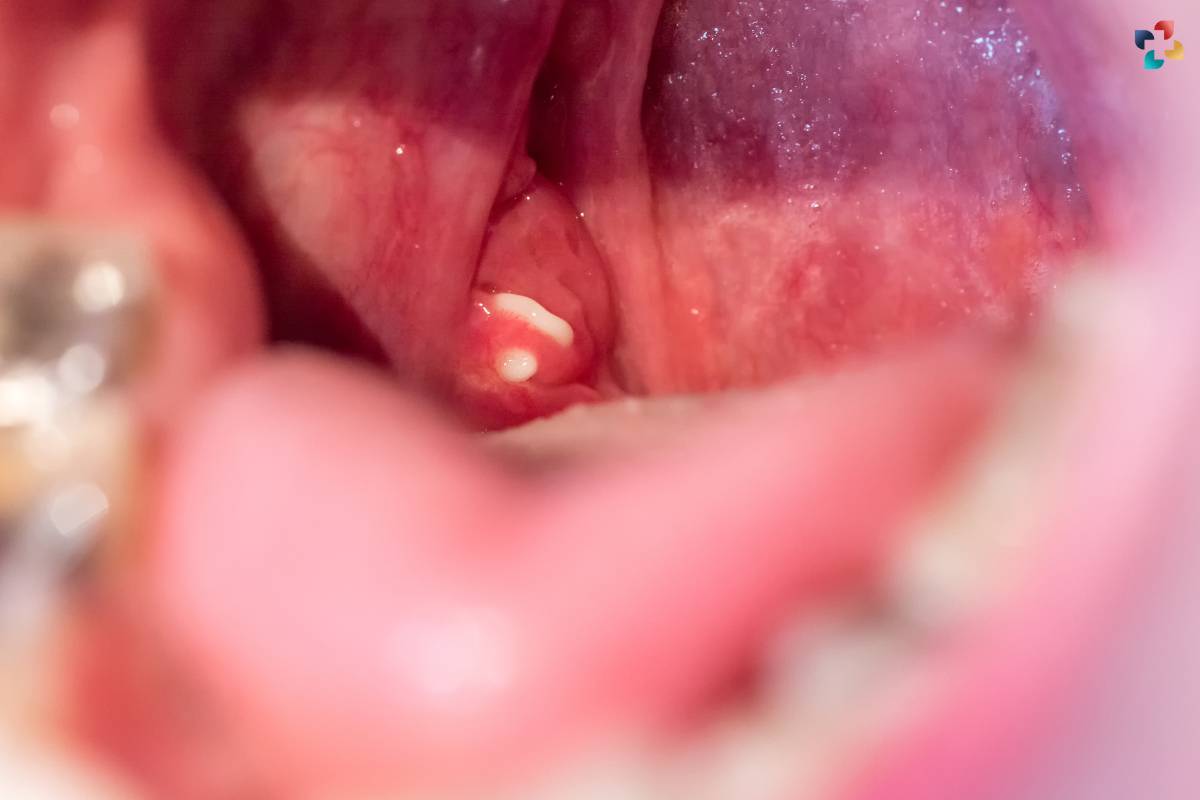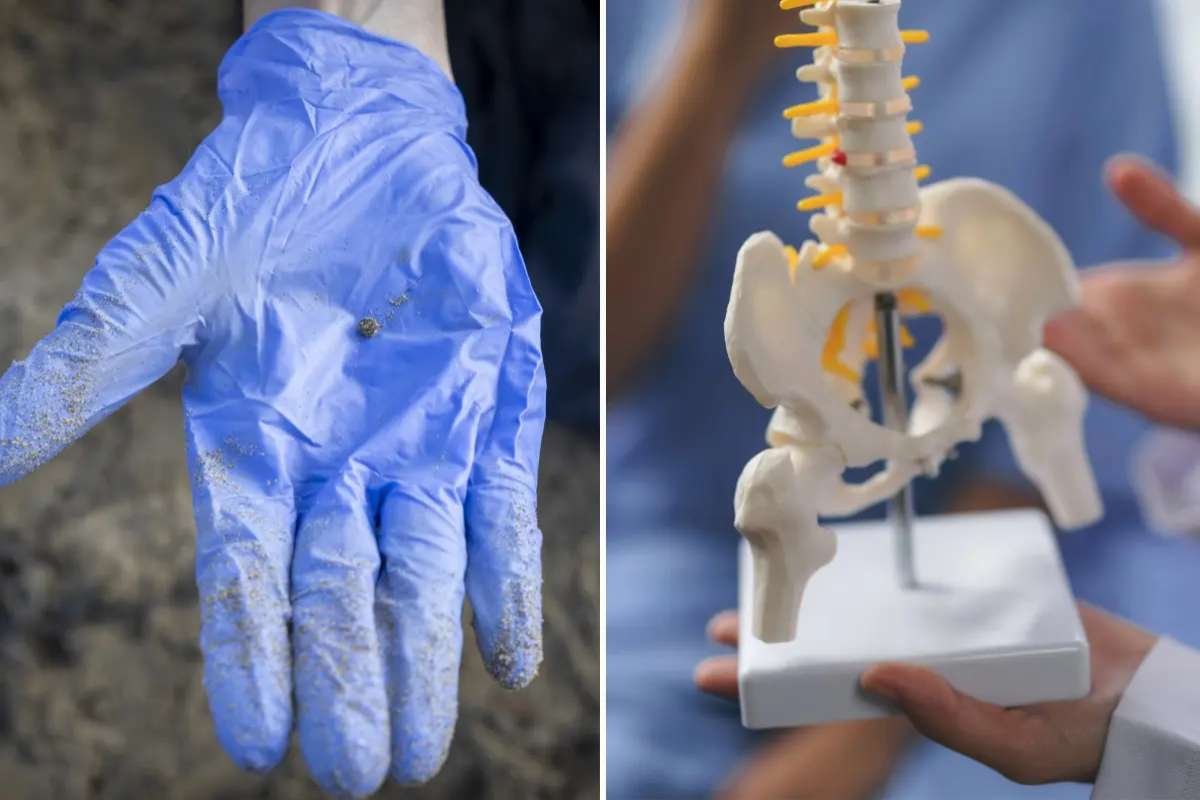Introduction:
Little, hard growths that form in the spaces between the tonsils are called tonsilloliths, or tonsil stones. Tonsil stones are generally innocuous, however they can give affected individuals pain and unpleasant sensations. We examine the causes, signs, and available treatments for tonsil stones in this extensive guide to help people effectively manage this frequent ailment.
Understanding Tonsil Stones:
Tonsil stones are typically composed of bacteria, food particles, dead cells, and mucus that accumulate and calcify in the tonsil crypts. These small, white, or yellowish formations can vary in size and may cause symptoms such as bad breath, sore throat, difficulty swallowing, ear pain, and a persistent cough. Tonsil stones are more common in individuals with large tonsils, chronic tonsillitis, or poor oral hygiene habits.
Tonsil stones, also known as tonsilloliths, often develop in the tonsil crypts, which are small pockets or crevices on the surface of the tonsils. When debris, bacteria, and other substances become trapped in these crypts, they can gradually harden and form tonsil stones over time. While they are generally harmless, tonsil stones can be bothersome and cause discomfort, particularly when they grow larger or become symptomatic.
Individuals with large tonsils or deep tonsil crypts are more susceptible to tonsil stone formation, as these anatomical features provide more space for debris accumulation. Additionally, individuals with chronic tonsillitis, a condition characterized by recurrent inflammation of the tonsils, may experience more frequent episodes of tonsil stones. Poor oral hygiene practices, such as irregular brushing and flossing, can also contribute to the buildup of bacteria and debris in the tonsil crypts, increasing the risk of tonsil stone formation.
Causes of Tonsil Stones:

1. Poor Oral Hygiene
Inadequate oral hygiene practices can lead to the accumulation of bacteria, food debris, and other substances in the tonsil crypts, increasing the risk of tonsil stone formation.
2. Chronic Tonsillitis
Recurrent episodes of tonsillitis can contribute to the development of tonsil stones, as inflamed tonsils may trap more debris and bacteria.
3. Large Tonsils
Individuals with naturally large tonsils or deep tonsil crypts may be more prone to tonsil stone formation due to the increased surface area for debris accumulation.
4. Dietary Factors
Certain dietary habits, such as consuming dairy products or sugary foods, may contribute to tonsil stone formation by providing the bacteria and nutrients necessary for their development.
5. Dry Mouth
Reduced saliva production, often caused by dehydration or certain medications, can result in dry mouth conditions that promote the accumulation of debris in the tonsils.
Symptoms of Tonsil Stones:
1. Bad Breath
Tonsil stones can cause persistent bad breath or a foul taste in the mouth due to the release of sulfur compounds produced by bacteria trapped in the tonsils.
2. Sore Throat
Tonsil stones may irritate the throat, leading to discomfort, pain, or a sensation of something stuck in the throat.
3. Difficulty Swallowing
Larger tonsil stones or clusters may obstruct the throat, causing difficulty swallowing or the sensation of a lump in the throat.
4. Ear Pain
Tonsil stones located near the ear can cause referred pain or discomfort in the ear, often mistaken for an ear infection.
5. Coughing
Tonsil stones can stimulate the gag reflex or irritate the throat, leading to persistent coughing, especially when swallowing.
Treatment Options for Tonsil Stones:

1. At-Home Remedies
Mild cases of tonsil stones may respond to at-home remedies such as gargling with salt water, using a water flosser to flush out debris, or gently removing stones with a cotton swab or oral irrigator.
2. Antibiotics
In cases of chronic tonsillitis or recurrent tonsil stones, healthcare providers may prescribe antibiotics to reduce inflammation and prevent bacterial growth in the tonsils.
3. Tonsillectomy
For severe or recurrent tonsil stones that do not respond to conservative treatments, surgical removal of the tonsils (tonsillectomy) may be recommended.
4. Laser Tonsil Cryptolysis
This minimally invasive procedure uses laser energy to reshape the tonsil surface and reduce the depth of tonsil crypts, reducing the likelihood of tonsil stone formation.
5. Tonsil Stones Removal
In-office procedures such as manual extraction, suction, or curettage may be performed by an otolaryngologist (ENT specialist) to remove tonsil stones and alleviate symptoms.

Understanding Strep Throat: Symptoms, Causes, Treatment, and Home Remedies
A bacterial illness of the tonsils and throat, strep throat is also referred to as streptococcal pharyngitis. It is extremely contagious and is brought on by the group A Streptococcus bacterium.
Prevention Tips for Tonsil Stones:
Taking proactive measures to prevent the formation of tonsil stones can help individuals maintain optimal oral health and minimize discomfort associated with this condition. By adopting simple lifestyle modifications and practicing good oral hygiene habits, individuals can reduce the risk of tonsil stone formation and promote overall well-being. Here are some effective prevention tips to consider incorporating into your daily routine:
1. Practice Good Oral Hygiene
Brushing your teeth twice a day, flossing daily, and using an antimicrobial mouthwash can help reduce the buildup of bacteria and debris in the mouth and tonsils.
2. Stay Hydrated
Drink plenty of water throughout the day to maintain adequate saliva production and prevent dry mouth, which can contribute to tonsil stone formation.
3. Avoid Smoking and Alcohol
Smoking and excessive alcohol consumption can irritate the throat and promote bacterial growth, increasing the risk of tonsil stones.
4. Limit Dairy and Sugary Foods
Minimize your intake of dairy products and sugary foods, as they can contribute to the buildup of debris and bacteria in the tonsils.
5. Regular Dental Checkups

Visit your dentist regularly for dental cleanings and checkups to maintain good oral health and identify any potential issues, such as cavities or gum disease, that may contribute to tonsil stone formation.
Conclusion
A common and frequently irritating illness, tonsil stones can cause discomfort, poor breath, and other symptoms in its victims. People can effectively manage their tonsil stones and enhance their overall dental health and quality of life by being aware of the causes, symptoms, and available treatment choices. Tonsil stones can be less harmful to people’s dental health and well-being by practicing good oral hygiene, making lifestyle changes, and seeking prompt medical attention when needed.







